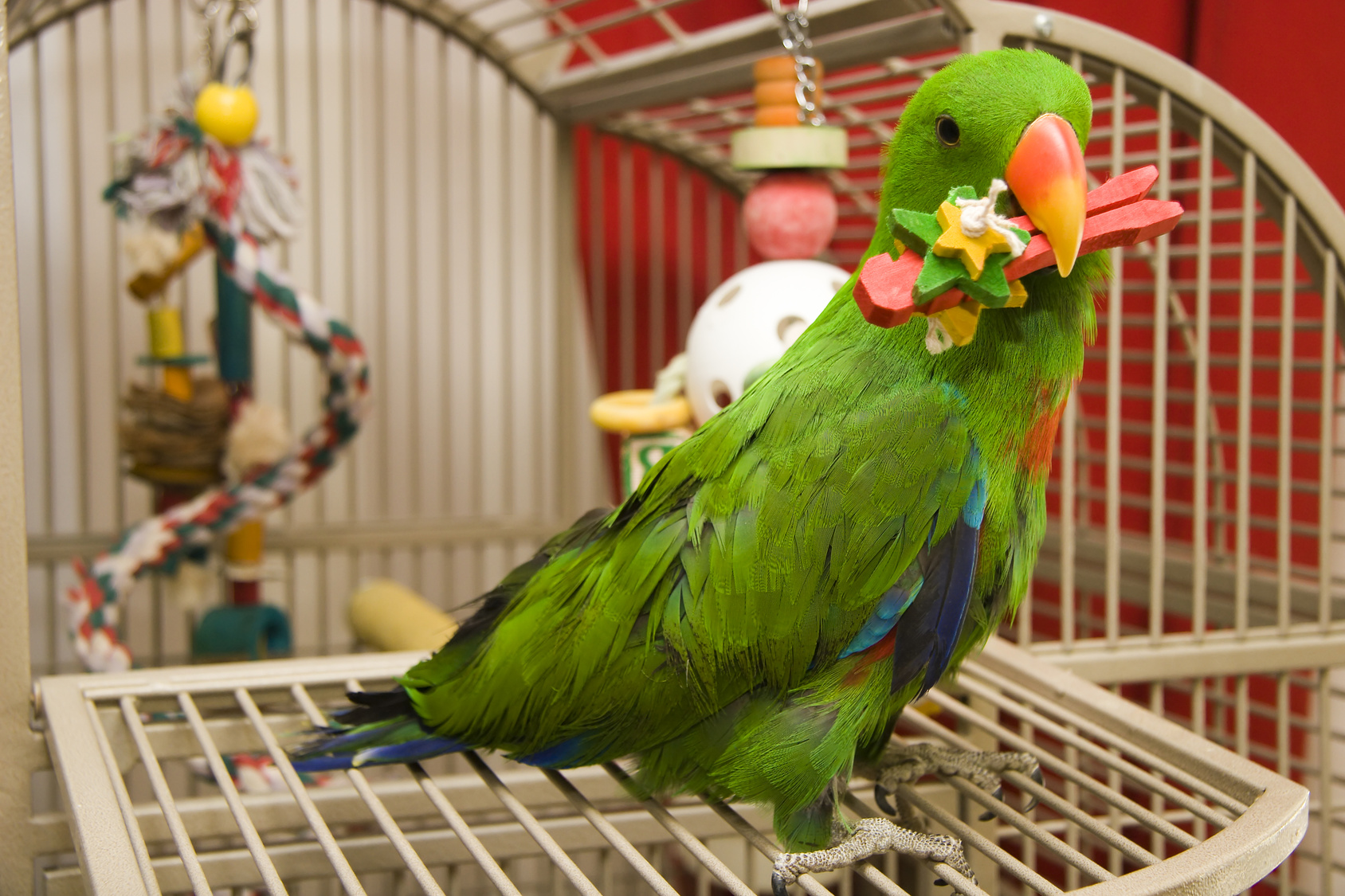
5 Common Behavioral Problems in Pet Parrots (And How to Fix Them)
For any pet owner, it’s important to recognize when pets are displaying behavioral problems and to know how to resolve the issue.
And, just as pets like cats and dogs can misbehave, pet parrots can exhibit a range of problem behaviors and cause frustration for their owners.
However, there are certain behavioral issues displayed by parrots which are more widely reported than others.
Read on to find out what behavioral problems to look out for in your pet parrot and what you can do to fix them.
1. Biting
Biting is probably the most common problem seen in pet parrots, and it’s often a result of how the owner approaches and treats their pet.
If you approach your pet parrot with apprehension, it will sense this and respond with a bite. And if you use your hands to shoo your bird away or cause harm, it will learn to associate your hands with something bad. Parrots and other birds don’t have hands to defend themselves so they use their beaks.
Unfortunately, not all birds are as well-treated as those from XtreemParrotlets and may be acting out of fear after experiencing abuse. So, even if you’ve always been kind to your pet parrot, it may be reacting this way due to how it was previously treated.
The best way to overcome the problem of biting is to approach your parrot calmly and only ever use your hands in a friendly way, never for rejection or punishment.
Reward your parrot when it doesn’t bite you, and avoid reacting when it does. If you scream or yelp this will reinforce the behavior and your parrot will continue to bite you.
2. Feather Plucking
This is a serious issue that close to three out of ten birds suffer from at some point, although there are many different causes for it.
A poor diet can cause brittle or frayed feathers so be sure to provide your pet parrot with a varied diet full of nutrients.
A lack of light can also lead parrots to self-mutilate. Put your bird’s cage in a sunny spot of the house so that your parrot gets a daily dose of sunshine and vitamin D.
Feather plucking can be as a result of boredom. Keep your parrot entertained with toys and make sure that its cage is big enough to move around in.
Lastly, feather plucking is often a sign of depression or loneliness. Spend plenty of time with your parrot and give it lots of attention, especially if you have recently spent time away from home or someone in the household has left.
3. Screaming
While screaming and vocalizing are common for most birds, especially at dawn and dusk, inappropriate screaming is a clear problem.
As with biting, you should ignore any screaming or sounds you don’t like and avoid looking at or going to your parrot when it’s screaming.
But, also make a point of rewarding your pet with attention and praise when it stops screaming. Gradually wait for longer periods of time before giving attention so that your parrot learns not to scream.
Screaming can be a result of boredom or stress. So, to eliminate the cause of the problem, make sure your parrot is well-stimulated with toys and plenty of human interaction.
And, just as talking or writing down our feelings can help us cope with stress, teaching your parrot to talk can help it express what it’s feeling.
4. Destructive Behavior
Destructive behavior in parrots such as making a mess of their cage or biting furniture is often a sign that your pet isn’t receiving enough mental stimulation.
Be sure to spend lots of time with your parrot, talk to it and include it in your daily activities, such as family meal times and watching television.
Get new toys for your parrot to stave off boredom and make a point of regularly talking to your parrot and praising it, especially when it refrains from destructive behavior.
5. Becoming Territorial
Territorial birds will react to or attack anyone who occupies a certain area, such as a piece of furniture, claiming it as personal territory.
Birds can sometimes become territorial as a result of hormonal changes. However, your parrot’s territoriality might be a sign that it is unhappy with its environment and isn’t as comfortable with you as you would like.
Bonding techniques such as sharing bird-safe food and giving your parrot regular baths can help, as can relaxing your parrot with soothing music. Try to create a calm, open atmosphere so that your parrot learns to live alongside you and your family without the need to claim territory.
Encourage and Engage Your Pet Parrot to Help Stop Behavioral Problems
These common behavioral problems seen in parrots are mainly a reflection of a lack of stimulation within their environment.
So, be sure to keep your parrot engaged by regularly talking to your pet, giving it toys to play with, and keeping it involved in daily activities.
And, while many of these bad behaviors should be ignored so as not to reinforce them, remember to always encourage and praise your parrot for good behavior.
Does your parrot have any of these behavioral problems? Or can you offer any additional advice to stop your parrot from behaving badly? Let us know by commenting below.
